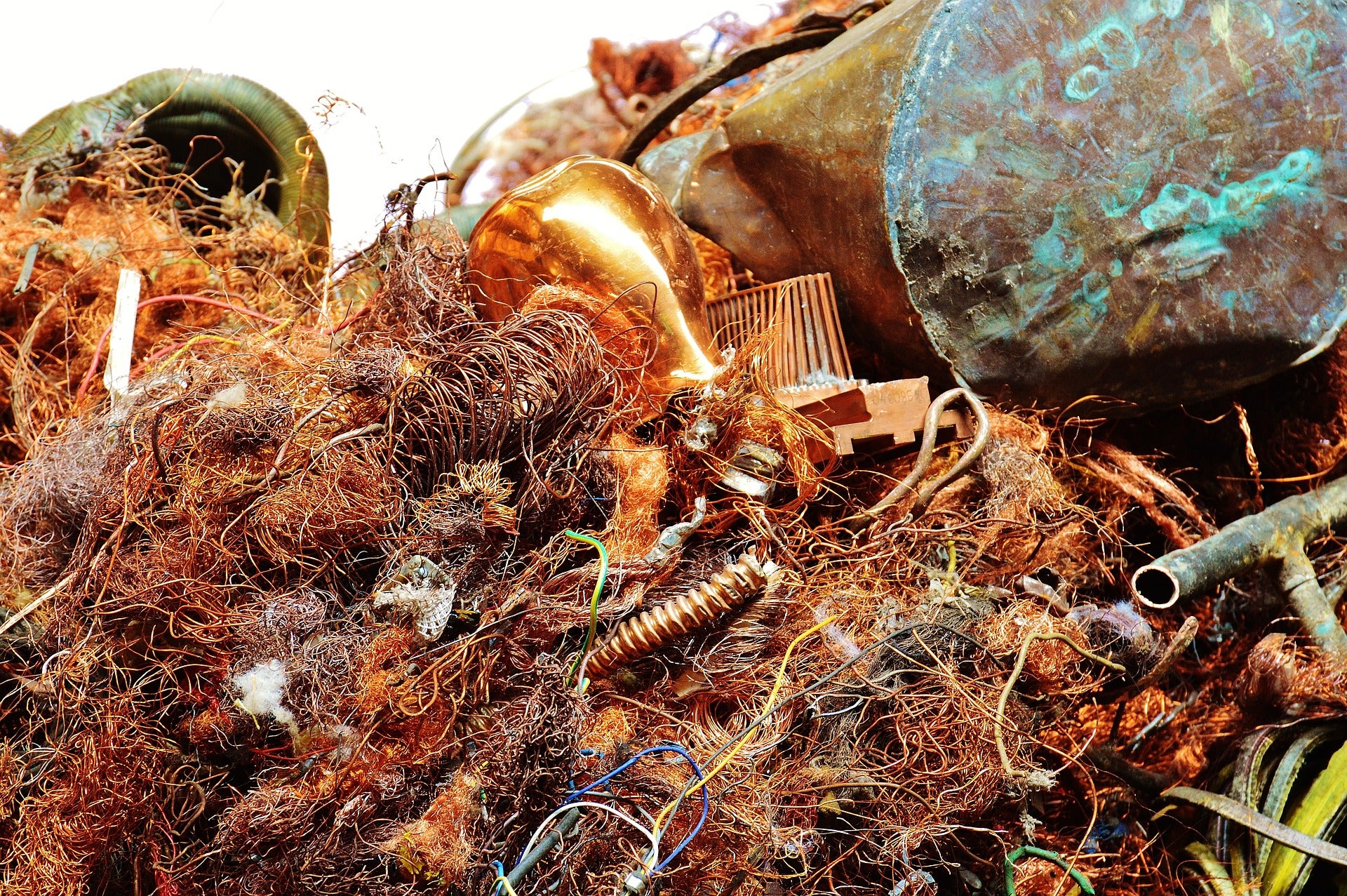Sign up for daily news updates from CleanTechnica on email. Or follow us on Google News!
Conservative politicians across the US are sharpening their attacks on electric vehicles (EVs) as well as making anti-clean energy a carrion call for philosophic unity.
The national US Republican Party, known proudly as the GOP (ie. Grand Old Party), wants to repeal EV incentives passed by the Biden-Harris administration. Amidst all the acrimony, the conservative fringe neglects to mention that many Republicans are reaping the economic benefits of EVs, especially in Southern US states where automakers and battery companies are investing billions of dollars for manufacturing.
It has become derigueur these days for conservative politicians to boast of anti-clean energy stances and to promote supporting anti-clean energy legislation. “I never thought I would see the day when our products were so heavily politicized,” Bill Ford, executive chair of Ford Motor, told the New York Times.
Oh, the games politicians play.
A Short List of the Long-Standing Anti-Clean Energy Republican Antics
Michael Mann, director of the Center for Science, Sustainability, and the Media at the University of Pennsylvania, argues that a constellation of think tanks and front groups, most of which are tied to fossil fuel companies or conservative donors like the Koch brothers or the Scaife Foundations, work from positions of delay, deny, deflect, and downplaying the seriousness of the climate crisis. “The idea here,” Mann explains, “is to say ‘Look, we can continue to extract and sell and burn fossil fuels because we have all these techno fixes, other things that we can do to the climate system.’” Mann insists that “we need to vote for politicians who will do what’s right by us and act on climate, rather than the politicians who too often are simply acting as rubber stamps for polluters.”
Here are some of those politicians and the polluting bills they’ve attempted to enact in order to maintain the devastating hold of the fossil fuel industry on US energy.
In 2016, then-candidate Donald Trump promised to bring back coal mines, steel mills, and basic manufacturing if elected. He failed to do so, and now he’s critiquing the EV transition. More recently, the once-and-future presidential candidate has claimed — without evidence but with a lot of vitriol — that EVs will all be made in China and will destroy the US auto industry.
This month at least 8 states have implemented rules that require EV drivers to pay an annual $200 registration fee in an effort to make up for lost gas tax revenue. EV advocates say it’s an effort to block sales of the environmentally friendly vehicles.
The US House of Representatives in September passed a bill targeting California’s efforts to phase out internal combustion engine (ICE) vehicles. The legislation would bar states from limiting the sales of ICE vehicles and rescind any federal approvals for states to do so that were issued since the start of 2022. However, under the Clean Air Act, a state can pursue clean car rules that are stricter than those from the federal government if they get permission from the Environmental Protection Agency (EPA), and California is in the clear.
Governor Ron DeSantis of Florida, a Republican candidate for US president, promised in September to roll back EV subsidies to “support Americans’ right to drive the cars they want.” While he slammed EVs and global climate agreements, he concurrently promised to lower fuel prices and push for more oil and gas development.
Senator Deb Fischer (R-NE) introduced a bill in late September to impose $1,550-per-vehicle fees for companies that make EVs and designate that money into a federal fund that pays for highway upkeep. She suggests the action would “stop EVs from freeloading.”
Senators Mike Crapo (R-ID) and Pete Ricketts (R-NE) introduced the “Choice in Automobile Retail Sales” (CARS) Act to counter what they call the Biden Administration’s “radical environmental agenda and executive overreach.” They’re seeking to prevent the implementation of a proposed rule and other regulations that seek to limit consumer vehicle choice. If enacted, the legislation would limit the reach of the Clean Air Act, would reign in the EPA proposed emissions rule, and would delete any restrictions on new vehicle type based on that vehicle’s engine.
On October 26 the Senate rejected an amendment from Senator Marco Rubio (R-FL) that sought to block federal agencies from tightening energy efficiency standards for new homes that they finance. Rubio argued that such new rules would cost US citizens tens of thousands of dollars at today’s interest rates. However, Alys Cohen, who leads housing advocacy for the National Consumer Law Center, told the Washington Post and other reporters that the Biden administration’s proposal would save homeowners an average of $15,000 on their energy bills. “Because of higher energy costs, low-income families often face the question of whether to heat or eat.”
Why Are So Many Conservatives Anti- Clean Energy?
Holding to an anti-clean energy platform has been a common front for conservatives as renewable energy becomes more prevalent each year. They claim that they will eliminate the White House tax incentives to build and buy EVs and roll back fuel efficiency standards — both of which are designed to reduce GHGs. What’s the purpose of opposing clean energy?
- It allows conservatives to criticize China, the dominant economic force in the battery industry.
- It pleases GOP voters who cannot reconcile themselves to the reality of the climate crisis and the transition from fossil fuel energy.
- It captures and foments a perspective in which “woke” people are trying to tear away familiar and comfortable lifestyles and belief systems.
- It is symbolic of a nostalgic golden era in which majority whites controlled institutions, systems, and structures and in which non-whites acquiesced — often due to fear of physical retaliation — to dominant government power forces.
Arguments made against EVs seem to embrace a worldview in which the US cannot — rather than can — overcome obstacles like supply chain issues, collateral damage from critical mineral extraction, or charging station network implementation problems.
Indeed, such messaging is the antithesis of the Franklin D. Roosevelt leadership approach. In his last speech to the American people, FDR said, “Today we are faced with the preeminent fact that, if civilization is to survive, we must cultivate the science of human relationships—the ability of all peoples, of all kinds, to live together and work together, in the same world, at peace.” The times are different than at the post-WWII stage, but survival is, indeed, still at stake with the pressure of the climate crisis bearing down on us.
Yet, instead of trying to “cultivate the science of human relationships,” this year’s Republic candidates for US president suggest that:
- EVs are inaccessible to middle and blue collar economic classes;
- it’s unrealistic to believe that EVs can technically provide the safety, dependability, and comfort of current ICE vehicles; and,
- US automakers will fail in contrast to China automotive manufacturing.
Conservative legislators across governance continue to support the fossil fuel industry and their subsidiaries. In spring, 2023, they passed an energy bill aimed at expanding mining and fossil fuel production that would repeal sections of the Biden-Harris landmark climate legislation. That failed, but the collective conservative mindset that they have a license to pollute continues on.
Anti-Clean Energy Rhetoric is Absent in Some GOP Quarters
No issue is fully black-and-white, and not all Republicans, of course, are anti-clean energy. Several red states are reaping the benefits of the Inflation Reduction Act. Governor Brian Kemp of Georgia, for example, has been quite active in recruiting EV battery plants as sources of jobs. Tim Echols, a Republican who serves as vice chair of Georgia’s elected Public Service Commission, told Politico that Trump’s comments trashing the technology are contrary to the views of top GOP officials in his state.
And then there are Citizens for Responsible Energy Solutions (CRES), a District of Columbia-based clean energy advocacy organization, and the Conservative Energy Network (CEN), a national network with chapters in 24 states across the country. Both work to educate and support Republican policymakers who champion clean energy in Congress. These groups remind legislators that US environmental protection laws and Republican states and districts across the country that are embracing new clean energy technologies and conservation practices will help leave the planet sustainable.
Have a tip for CleanTechnica? Want to advertise? Want to suggest a guest for our CleanTech Talk podcast? Contact us here.
EV Obsession Daily!
I don’t like paywalls. You don’t like paywalls. Who likes paywalls? Here at CleanTechnica, we implemented a limited paywall for a while, but it always felt wrong — and it was always tough to decide what we should put behind there. In theory, your most exclusive and best content goes behind a paywall. But then fewer people read it!! So, we’ve decided to completely nix paywalls here at CleanTechnica. But…
Thank you!
Community Solar Benefits & Growth
CleanTechnica uses affiliate links. See our policy here.




